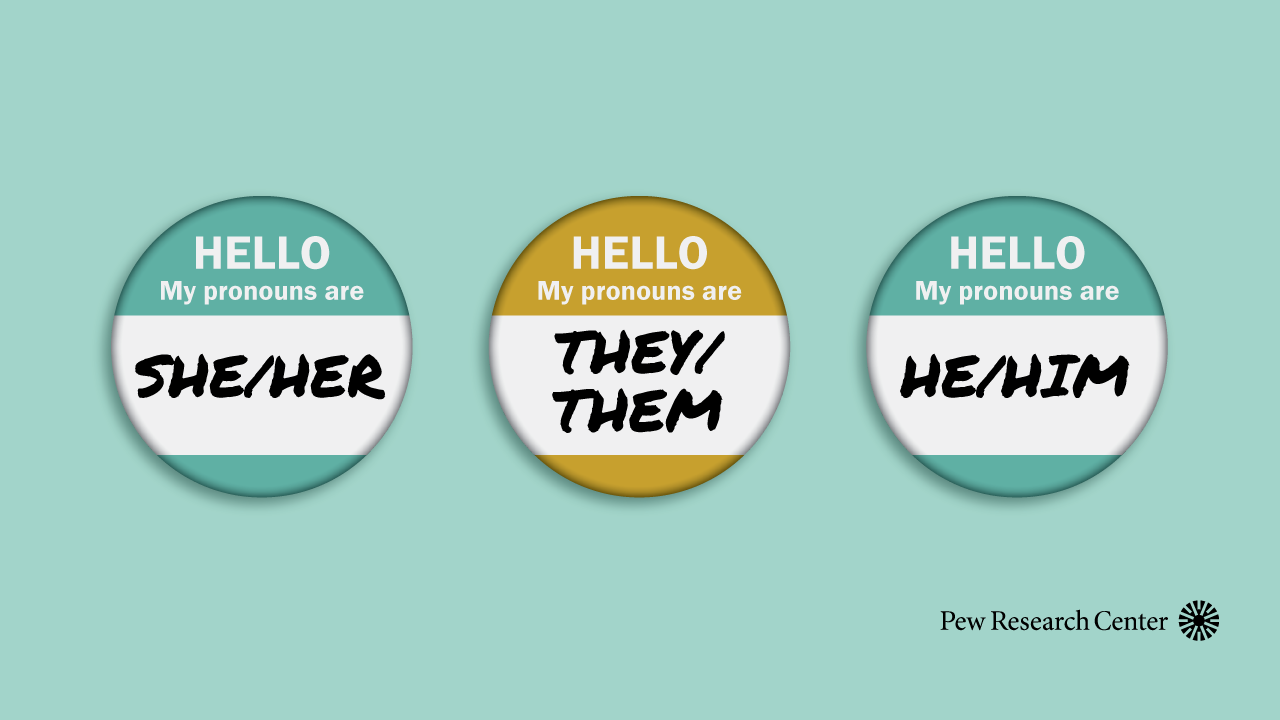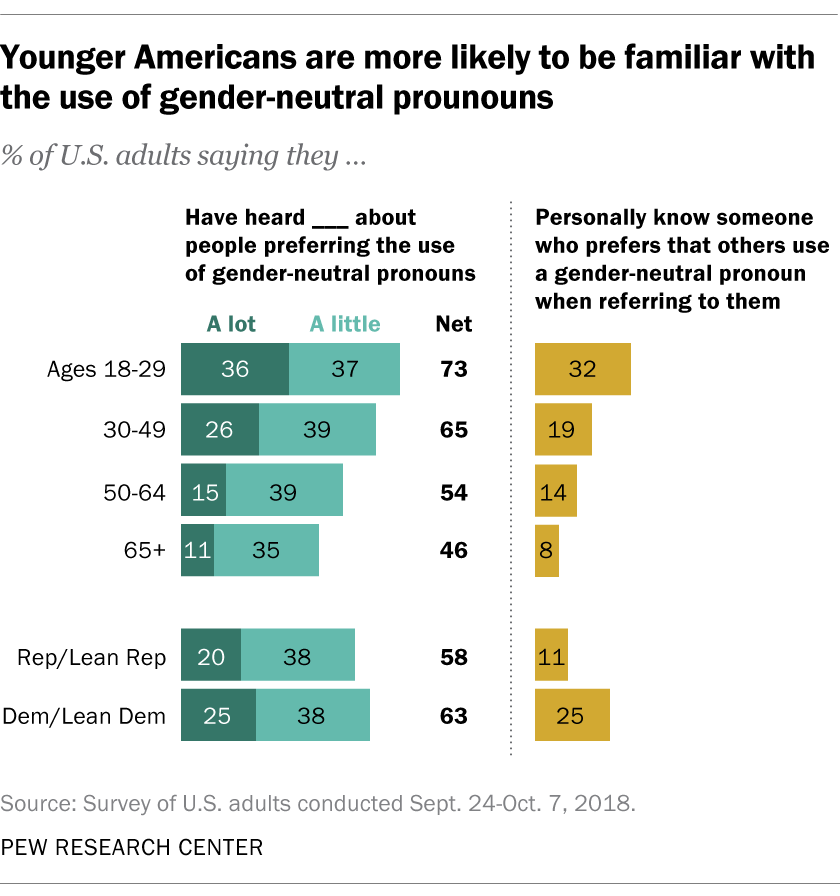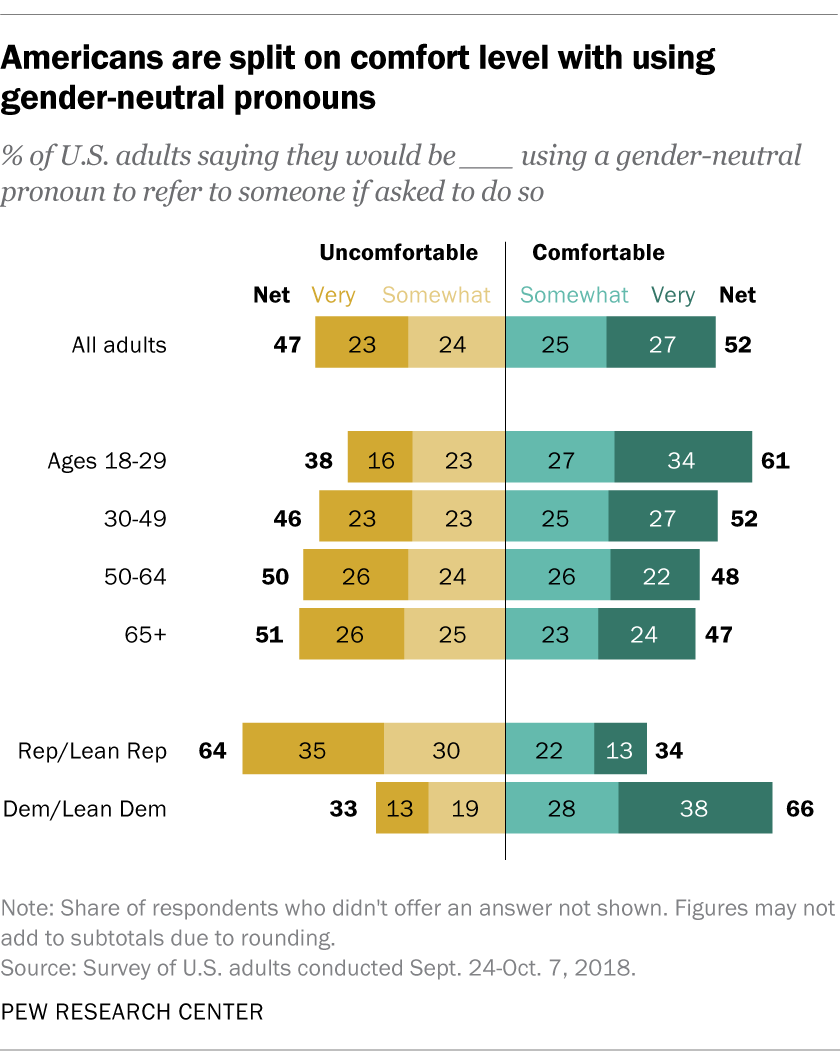
As the experiences of people who don’t identify as a man or a woman have gained attention, a majority of Americans say they have heard at least a little about the use of gender-neutral pronouns. And about one-in-five (18%) say they personally know someone who goes by such pronouns.

Overall, six-in-ten Americans say they have heard at least a little about people preferring that others use gender-neutral pronouns such as “they” instead of “he” or “she” when referring to them, including 22% who say they have heard a lot about preferences for such pronouns, according to a Pew Research Center survey conducted in fall 2018.
See also: About four-in-ten U.S. adults say forms should offer more than two gender options
Age and political affiliation are major factors in Americans’ awareness of the use of gender-neutral pronouns.

Younger adults are more likely than older adults to say they have heard of people preferring gender-neutral pronouns and to know someone who goes by these pronouns. Roughly three-quarters of Americans ages 18 to 29 (73%) say they have heard a little or a lot about people preferring nonbinary pronouns, compared with about two-thirds of those 30 to 49 (65%) and smaller shares of those ages 50 to 64 (54%) and 65 and older (46%). Meanwhile, about three-in-ten adults ages 18 to 29 (32%) personally know someone who goes by these types of pronouns, compared with smaller shares of older adults.
While majorities of both Democrats and Republicans have heard at least a little about people going by gender-neutral pronouns, there is a larger gap between partisans in whether they personally know someone who identifies in this way. A quarter of Democrats and Democratic-leaning independents say they know someone who prefers being referred to using gender-neutral pronouns, versus 11% of Republicans and Republican-leaning independents. Party differences remain even when looking only at young adults: About four-in-ten Democrats ages 18 to 29 (39%) say they know someone who goes by gender-neutral pronouns, compared with 22% of Republicans of the same age.
Are Americans comfortable with the use of gender-neutral pronouns?

Americans are divided when it comes to their comfort with using gender-neutral pronouns. As is the case with some other questions on nonbinary pronoun use, there are notable differences by age and party on whether Americans feel comfortable using gender-neutral pronouns to address those who ask for it, with young adults and Democrats more likely than older Americans and Republicans to express comfort.
Overall, roughly half of Americans (52%) say they would be somewhat or very comfortable using a gender-neutral pronoun to refer to someone, while 47% say they would be somewhat or very uncomfortable doing so.
Among Americans ages 18 to 29, about six-in-ten (61%) say they would feel somewhat or very comfortable using a gender-neutral pronoun to refer to someone if they asked them to do so. By comparison, roughly half of those ages 30 to 49 (52%) and 50 and older (48%) express comfort.
About two-thirds of Democrats (66%) say they would be somewhat or very comfortable using these pronouns to refer to someone if asked to do so, compared with 34% of Republicans. Party divides are present among young adults, too: Roughly seven-in-ten Democrats ages 18 to 29 (72%) say they would be comfortable referring to others with nonbinary pronouns, compared with 44% of Republicans in this age group.
Note: Findings on these questions were previously released as part of a report that explored generational differences in views of political and social issues. That report combined data from two surveys: a survey of U.S. adults ages 18 and older and a survey of teens ages 13 to 17. The findings in this post are based only on the survey of adults ages 18 and older. See full topline results and methodology.

